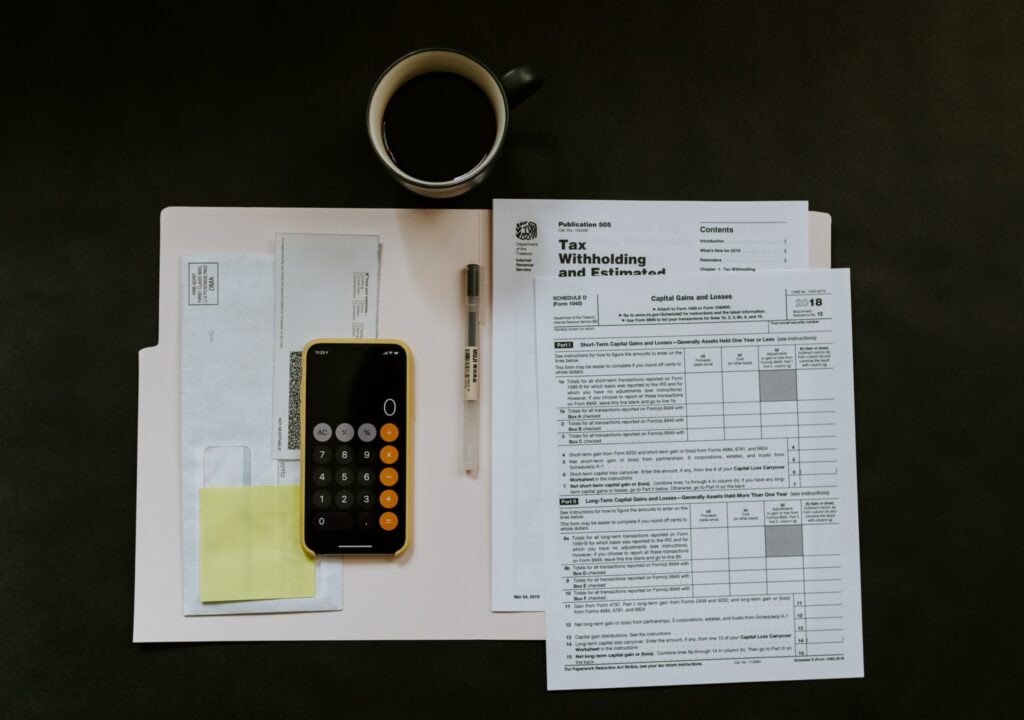Accountants enjoy a good salary and a wide variety of perks, but many college students don’t know how to become one. The path to accounting winds through unexpected places, and without proper guidance, you might feel lost and confused. The challenges you’ll encounter along the way will tax you, but the job security and benefits you’ll gain on the other side make that struggle more than worth it. So how does one become an accountant, and what do they do?
Read on to learn more about how to become a professional accountant:
Q: What Does a Professional Accountant Do?

A: Contrary to the stereotype of long, lonely days in a cubicle, accountants deal with a wide variety of interesting challenges. Here are some things you should expect to encounter:
The opportunity to specialize
Accounting encompasses many different subdisciplines, and you’ll eventually specialize in one thing or another, whether tax, audit or any number of other areas.
Numbers
Accounting won’t require incredibly complex math, but you will need to navigate on utilizing Excel spreadsheets.
Reports
Essentially, accounting consists of synthesizing information. Your clients will want to know why their business doesn’t seem to make money, but they won’t care about the ins and outs of very specific, tiny expenses. Accountants need to generate that five-minute explanation.
Client interaction
Accounting has a reputation as a lonely, boring profession, but in fact you’ll find that many people need your expertise as they conduct business.
The tax code
Tax accountants will obviously spend the most time brushing up on the tax code, but any accountant will need to devote themselves to understanding the ins and outs of this gigantic piece of legislation.
A choice of roles
Accountants work either in-house as a private accountant or at an accounting firm as a public accountant. Public accountants face a choice between different types of companies. The “Big Four” accounting firms (Deloitte, Ernst & Young, PricewaterhouseCoopers, and Klynveld Peat Marwick Goerdeler) often offer high salaries, but large workloads. Smaller firms may provide a better work-life balance and more opportunity to work with an array of smaller companies. You can also run your own accounting business, with all the stress and potential reward that brings.
Growth potential
As you move up, you’ll likely spend less time crunching numbers and more time talking to clients and bringing in business, which will allow you to develop a wide skillset.
Q: What Does It Take to Become a Professional Accountant?

A: You’ll need to check a number of boxes before you can become a true-blue accountant. The Certified Public Accountant (CPA) license represents the most basic qualification for any accountant. Technically, you can work in accounting without this license. It only gives you the right to file federal accounting documents. But because federal taxes comprise a lot of accounting work, in practice you won’t get far without a CPA license. Plus, a CPA license carries a lot of prestige, much like an MD for medicine or a JD for law, and you even get to put letters after your name once you get one.
Education
Each US state issues its own CPA licenses and imposes different requirements. In general, however, applicants will need to take a certain number of credit hours in accounting, and in most cases will need at least a bachelor’s degree in the subject, or a business degree with an accounting concentration. Though applicants can choose to get a master’s degree as well, no state requires this. Technically, you can become an accountant without the correct bachelor’s degree, but because the accounting classes teach valuable skills, this path may prove difficult.
Experience
In addition to the degree, applicants need work experience, much like a medical residency. But the amount and type of experience depends on the state. In the state of Washington, for example, accountants will need to pull together at least twelve months and 2000 hours of relevant experience. Candidates need to do accounting-type work to gain this experience, so a lower-down job at an accounting firm would typically fit the bill. Some states also allow jobs in other areas, like general business, government and even academia. But states vary in strictness about what counts as relevant experience, so you should always check your local laws before you accept a position.
The Exam
Lastly, you’ll sit for the CPA exam. Every state offers the same CPA exam, and studying to pass it forms the capstone of an accountant’s education. The test poses a fearsome challenge, taking sixteen total hours to complete, although examinees usually sit only for one four-hour section at a time. You’ll need to overcome multiple choice questions, task-based simulations and writing sections. With all your hard work, passing it might prove easier than you think.
Q: How Much Will I Earn As a Professional Accountant?

A: Salaries vary by region, specialization, and company, so no general estimate exists for what you might earn as an accountant. But in the expensive Seattle area, for example, beginning accountants might expect to earn around $67,000-$74,000 a year. This will trend lower in areas of the country, like the Midwest and South, with lower average salaries. Accountants can also look forward to stipends for their work materials and a monetary bonus, typically between one and five thousand dollars, for passing the CPA exam. But accounting also offers great potential for salary growth.
“There tend to be good raises as people progress. Mine were always at least 8% or more. There’s lots of opportunities to make more as you move up,” a tax accountant at the Seattle firm Sweeney Conrad, Michelle Peters, said.
However, you may not experience this level of growth. If you leverage your opportunities poorly and never grow professionally, you may not see the same salary increase over time. Like in any career, you’ll need to work hard and stay hungry to get the salary you dream of. Still, $70,000 a year certainly beats salaries for many other careers.
Q: If I Become a Professional Accountant, How Much Will My Employers Expect Me to Work?

A: Working hours vary between different accounting specializations. Tax accounting demands the most hours with a high season between January and May. Audit accountants may see a slightly less demanding high season in spring, but then another high season in September and October. You may put in fifty to sixty hours a week during these high seasons, but then you do get the opportunity to take summer vacations and time off around the holidays. However, this high season tendency has become less common over time, especially at large firms. And, of course, if you run your own firm, you’ll likely need to put in a lot of work.
“When you work for yourself, there’s no such thing as overtime. When you work for somebody else, I think overtime is pretty typical, especially for tax,” an accountant at the Seattle firm Raymond Lyle, Andrew Lyle, said.
But this often grueling schedule comes with its upsides. For instance, managers might expect to receive six weeks of paid vacation every year and a salary to match. Also, since many accounting firms offer a work from home option, accountants can cut the commute some days; Lyle said that he typically spends only forty percent of his time in the office. Still, you will need to work hard as an accountant.
Q: What Do I Need to Know About the Future of Accounting?

A: Accounting is growing, growing, growing. As tax codes become more complex and companies extend operations into different states and more foreign countries, the economy needs more and more accountants. The field has recently branched into new areas, for example audits of company IT operations. With more and more globalization to come, more growth lies just over the horizon. And you’ll enjoy job security as well. While computers have changed the accounting profession, they can’t shrink the role an accountant plays.
“There are so many things that a computer just can’t advise clients on. There is just an overload of information out there,” Peters said.
In the short term, the COVID pandemic has also improved prospects for beginning accountants. The massive economic reshuffle of the past few years has left many accounting firms desperate for talent, which means that new accountants can earn more money. If you want to get into accounting, you should do it soon.
Top Three Skills for Accountants

- Being detail-oriented. Accounting requires great attention to detail. One mistake can often cause chaos in a company’s books.
- Organization and Time Management. Accounting involves a lot of work, and successful accountants know ways to get it all done.
- People Skills. Accounting sounds like a lonely profession, but accountants actually talk to a lot of people every day. Good communicators will do well in accounting, and poor communicators might struggle.
Read On For Some Reviews From Professional Accountants:
“It’s so much more than looking at financial statements or tax documents all day. I’m a senior manager. I’ve been doing this for eight years now, and once I hit that senior level, what I was doing just grew,” Peters said. “I’m never bored. There’re endless opportunities to learn.”
“Become a CPA. It changed my life. It’s a hard road to travel, but it’s worth it. Get it done right away. Work through the pain and get it done, it’ll change your career,” Lyle said.



















